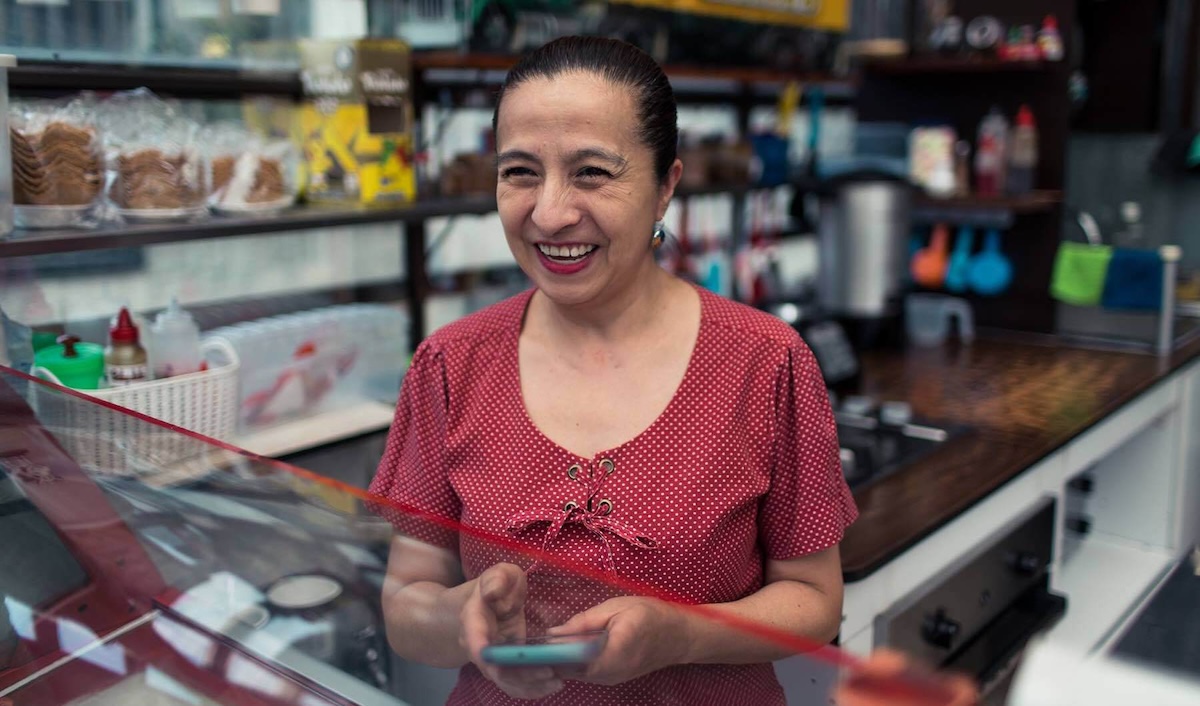Greetings Agents of Impact!
In today’s Brief:
- Labor battles in Starbucks’ boardroom
- Steadying the ship at South Pole
- Accelerating economic mobility
- BlackRock-Temasek fund for decarbonization
Featured: Worker Power
Better brew: Josh Gotbaum on what the Starbucks fight means for labor – and impact. Who’s center-stage in this pivotal year for US organized labor? Amtrak Joe Biden, the self-proclaimed labor-friendliest president in history? More like the baristas at your local Starbucks. One of the most watched recent labor battles is at Starbucks, home to burnt coffee and pumpkin spice lattes, where Workers United has tried to organize baristas 2021. The Starbucks fight is different from past labor battles in that it has played out in the boardroom as well as on the picket line. “Unions have learned from their activist hedge fund counterparts, and maybe the climate movement, to make the economic as well as human capital case: blocking workers’ right to organize is bad for shareholders,” contributing editor Imogen Rose-Smith writes in her latest Institutional Impact column. The Strategic Organizing Center, the labor coalition that includes Workers United, put together a slate of three alternative board members, and Starbucks was set for one of the most high profile proxy fights of this year. The board battle was averted in February with an agreement to negotiate. Imogen sat down with Josh Gotbaum, a former banker and member of the Carter, Clinton, and Obama administrations who was among the three candidates proposed by the labor coalition.
- The Engine No. 1 playbook. The San Francisco-based hedge fund manager successfully placed three candidates on the board of ExxonMobil in 2021. The Strategic Organizing Center was likewise making the economic case for unionization. Once a top performer, Starbucks’ stock slumped 1.6% last year compared to a rise of 11% for restaurants broadly, according to RetailWire. “Starbucks, which had a valuable record as an excellent employer, suddenly was the subject of literally hundreds of articles talking about its opposition to its employees’ desire to have a union on its side,” says Gotbaum. “SOC got creative and said ‘OK, let’s appeal to the shareholders.’ And that appeal worked.”
- Labor rising. The Starbucks drama shows how a tight labor market, a greater realization of the importance of worker protection post Covid-19, positive policy changes, and other factors have given unions a stronger hand to play than they’ve had in decades. Labor scored a big victory this month when Volkswagen workers in Chattanooga, Tenn., voted to join the United Automobile Workers, the first car factory to unionize in the historically labor-unfriendly South outside of those owned by the “Big Three” Detroit automakers. But Amazon has been battling unionizing efforts at its warehouses for more than two years, and Tesla has stymied organizing efforts. Starbucks and the Workers Union sat down last week for two days of talks, the closest that the unionized baristas have come to a collective bargaining agreement, CNBC reported.
- Keep reading, “Better Brew: Josh Gotbaum on what the Starbucks fight means for labor – and impact,” by Imogen Rose-Smith on ImpactAlpha.
Dealflow: Carbon Markets
Investors re-up in carbon creditor South Pole after a turbulent year. South Pole appears to be steadying the ship after the fallout of an expose on “faulty credits” last March. The episode was a moment of reckoning for the Swiss carbon credit seller and for the voluntary carbon markets more broadly. South Pole cut ties with its founding CEO Renat Heuberger as well as its troublesome Kariba forestation project in Zimbabwe. It reorganized its risk and compliance team, appointed a chief risk officer and, in February, announced a new CEO. Its three largest investors, Temasek’s GenZero, Lightrock and family office Corisol, have rewarded the efforts with new funding. The size of the round was not disclosed.
- Shake up. South Pole’s Kariba project was found to be grossly overestimating how much deforestation it was preventing, the basis for the credits issued to corporate buyers to offset their emissions. Moreover, local communities weren’t receiving the benefits. The scandal shattered confidence in the voluntary carbon markets. South Pole’s incoming CEO Daniel Klier, who headed sustainable finance at HSBC, vowed to put “trust and transparency [at] the heart of South Pole’s next chapter.” Lightrock, the impact investing arm of the royal family of Liechtenstein, has been a South Pole investor since 2001. Temasek invested in 2022.
- Share this post.
Common Future accelerates leaders for worker ownership, housing rights and ‘cannabis justice.’ The racial equity-focused investor is keying in on good jobs and sustainable livelihoods. Among the 10 Black and Latina-led organizations is Cooperation New Orleans, which sets up worker-owned cooperatives in poor and working class communities of color. Worker Justice Wisconsin is connecting faith-based and labor organizations to strengthen worker rights activism and incubate cooperatives in the state. Fit to Navigate facilitates pathways to entrepreneurship and sustainable wages for formerly incarcerated Ohioans. Forward Cities is building local support networks for entrepreneurs launching and growing businesses. ReMix IDEAS is strengthening the entrepreneurial ecosystem for Black business owners in Arkansas, while WisConnect is helping Black women scale their businesses in Illinois.
- Upward mobility. Common Future’s cohort is supported with $500,000 in grants and coaching. CannaBronx is working to ensure that communities most affected by the criminalization of marijuana benefit from New York’s emerging cannabis industry. Black Wildflowers Fund supports Black educators in pursuing leadership positions and designing new school and education models. Justice for the People is representing and empowering communities to advocate for their legal housing and land rights in Colorado. (Disclosure: Common Future is an investor in ImpactAlpha).
- Check it out.
Dealflow overflow. Investment news crossing our desks:
- Decarbonization Partners, a partnership between BlackRock and Temasek, reached a $1.4 billion final close for their growth-stage private equity energy transition fund. Allstate, BBVA and TotalEnergies are among the investors. (Decarbonization Partners)
- Green Climate Fund and Agence Française de Développement are backing Crédit Agricole du Maroc with €72 million ($77 million) in loans and technical assistance to boost Moroccan farmers’ climate resilience. (Barlaman Today)
- Capria Ventures closed its India Opportunity Fund with $19 million and also exited gig-work platform Awign to Japan’s Mynavi Corp. (Capria Ventures)
- St. David’s Foundation and Tito’s Vodka backed Austin Community Foundation’s $15 million Housing Accelerator Fund to address financing gaps for local developers. (Austin Business Journal)
- The US Department of Homeland Security awarded a $400,000 grand prize in for its Clean Power for Hours Challenge to Urban Electric Power for its US-made zinc batteries. (Urban Electric Power)
Short Signals: What We’re Reading
🦋 Private market biodiversity funds. Phenix Capital tallies more than 1,000 impact funds with some focus on biodiversity, a 234% increase from 2015. More than half are open for investment. An estimated $1 trillion in annual investment by 2030 is needed to support critical ecosystems. (Phenix Capital)
💸Tax credit transferability. The US Treasury Department and IRS finalized rules for businesses, nonprofits and governments looking to transfer their clean energy tax credits under the Inflation Reduction Act and other recent laws. (US Treasury)
⚖️ Standing up for DEI, ESG and impact investing. Adasina Social Capital has launched The Freedom Economy network to provide legal resources and support for investors in solutions for racial and economic injustice. (Adasina)
🐄 Sustainable food systems. One-quarter of global food companies recognize “the need to reduce reliance on animal-sourced foods and allow for higher welfare as part of a sustainable food system,” according to the Business Benchmark on Farm Animal Welfare’s latest report. (BBFAW)
☀️🦆 Duck curve in Texas. Texas is adding 35% more solar power capacity year over year, leading to the emergence of a “duck curve” pattern similar to the one seen in California: high solar production during the day causes demand for natural gas to plummet, until peak evening hours when it rises sharply, only to fall again at night. The resulting graph resembles a sitting duck. (Power Engineering)
Agents of Impact: Follow the Talent
The Predistribution Initiative names Juan Jardon-Pina, formerly of Deetken Impact, as a senior associate based in Mexico City… World Resources Institute is hiring a chief of staff for its climate, economics and finance program… In New York, Etsy is hiring an impact and sustainability specialist in Brooklyn; the NAACP Legal Defense and Educational Fund seeks an editorial director; and the Global Impact Investing Network seeks a summer associate for event communications… Jobs for the Future is looking for a senior prospect researcher in Boston.
👉 View (or post) impact investing jobs on ImpactAlpha’s Career Hub.
Thank you for your impact!
– April 29, 2024











